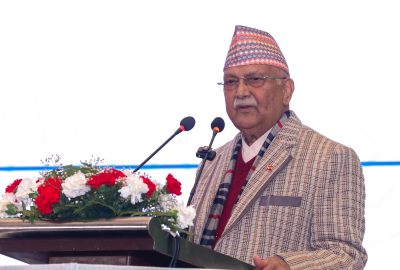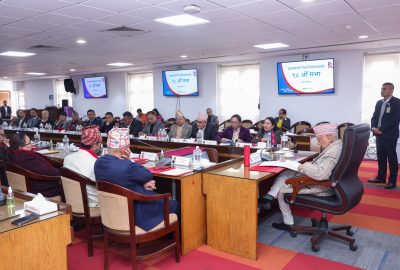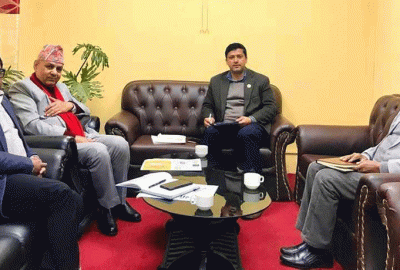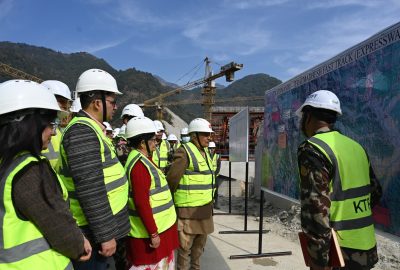Earthquake survivor Hira in desperate need for emergency assistance
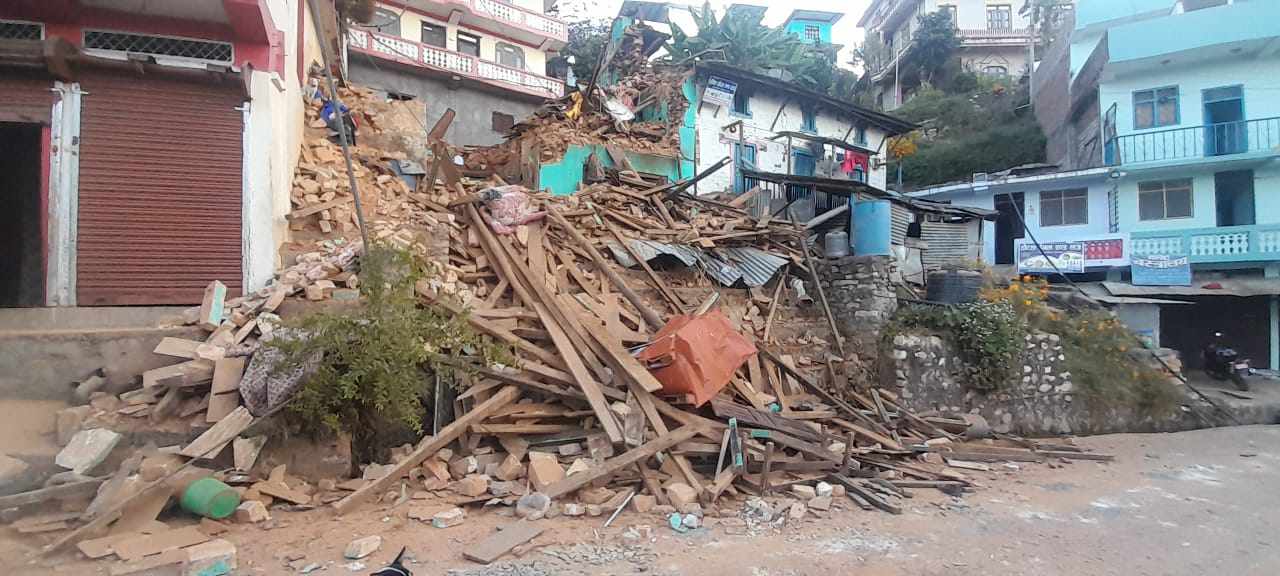
Bheriganga (Surkhet): It has been many weeks for Hira BK of Aathbiskot of Rukum West since she has not visited her maternal home. She was finding it hard to manage time to meet her brothers and their children as she was preoccupied with household chores. She was overwhelmed by the longing to see them.
Finally on November 3, she could manage the time to visit her siblings. Upon her arrival, Hira was greeted with warmth and hospitality by her brothers. She was offered delicacies and they together spent a quality time catching up. It was 11:30 pm when they realised the night grew late and decided to go to bed, promising to meet in the morning. It was less than 20 minutes after Hira settled into bed when the house started shaking before it collapsed within few minutes. Buried under the debris, Hira and her family were trapped. Thankfully, some fortunate villagers, who had escaped the calamity, came to their rescue after an agonizing half an hour.
Though Hira was fortunate to survive the disaster, Hira’s sister left them forever succumbing to the injuries she suffered in the disaster. As Hira recounted the ordeal, her brother’s daughter was desperately crying for help for life. “Sister, save me!” These haunting words continue to echo on Hira’s mind. “If she was rescued a bit earlier, she could be with us now,” she lamented. “My brother’s daughter left us for forever; brothers are in tears with injured bodies. We found ourselves amidst the pains and challenges.”
Those surviving the November 3 earthquake in Jajarkot and Rukum West face the similar situation. While grieving the loss of loved ones, they also face the immense challenge of meeting their basic needs. Emergency assistance from the government and various agencies has been deployed, but it has not been smooth and is not adequate. Psychoanalysts warn that survivors may face the psycho-social issues and need timely intervention. Women and children in the quake-stricken areas are vulnerable to this risk, they said.
Popular posts
- Not to worry about energy consumption, PM Oli reassures power producers
- Four-year dispute between KU, Dhulikel Hospital settled
- Main parties agreed to forward bills in parliament through common understanding
- President inspects Kathmandu-Terai/Madhesh Fast Track (Expressway) Road Project
- Israeli Ambassador Bass pays courtesy call on PM Oli
